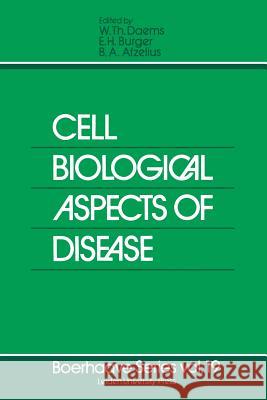Cell Biological Aspects of Disease: The Plasma Membrane and Lysosomes » książka
Cell Biological Aspects of Disease: The Plasma Membrane and Lysosomes
ISBN-13: 9789400986145 / Angielski / Miękka / 2011 / 342 str.
W. TH. DAEMS This volume contains the papers presented at a Boerhaave Course for Post graduate Education on The cell-biological aspects of disease: the plasma membrane and lysosomes. One of the purposes of this introduction is to explain the reasons for this choice of subject. The first question which might be asked - why a postgraduate course on the cell biological aspects of disease was considered neccessary - is not difficult to answer: the impact of the basic sciences on medicine is im measurably strong, and among these sciences cell biology has contributed immensely to the advances made in medicine during recent decades. It has provided clues leading to general insights into etiology and pathogenesis as well as to the development of diagnostic tools and a basis for therapeutic methods. These insights derived mainly from the still-increasing body of knowledge about the architecture of cells. Initially, this knowledge arose from the notion that cells are either simply bags full of enzymes or complex sponge like structures in which all organelles are permanently interconnected (Fig. 1). Later, this notion was replaced by a highly schematized picture of the cell as an essentially two-compartment structure (Fig. 2) in which cell organelles are discrete units separated from each other by membranes, enabling each organelle to maintain an internal microenvironment with optimal conditions for its specific metabolic pro cesses."











